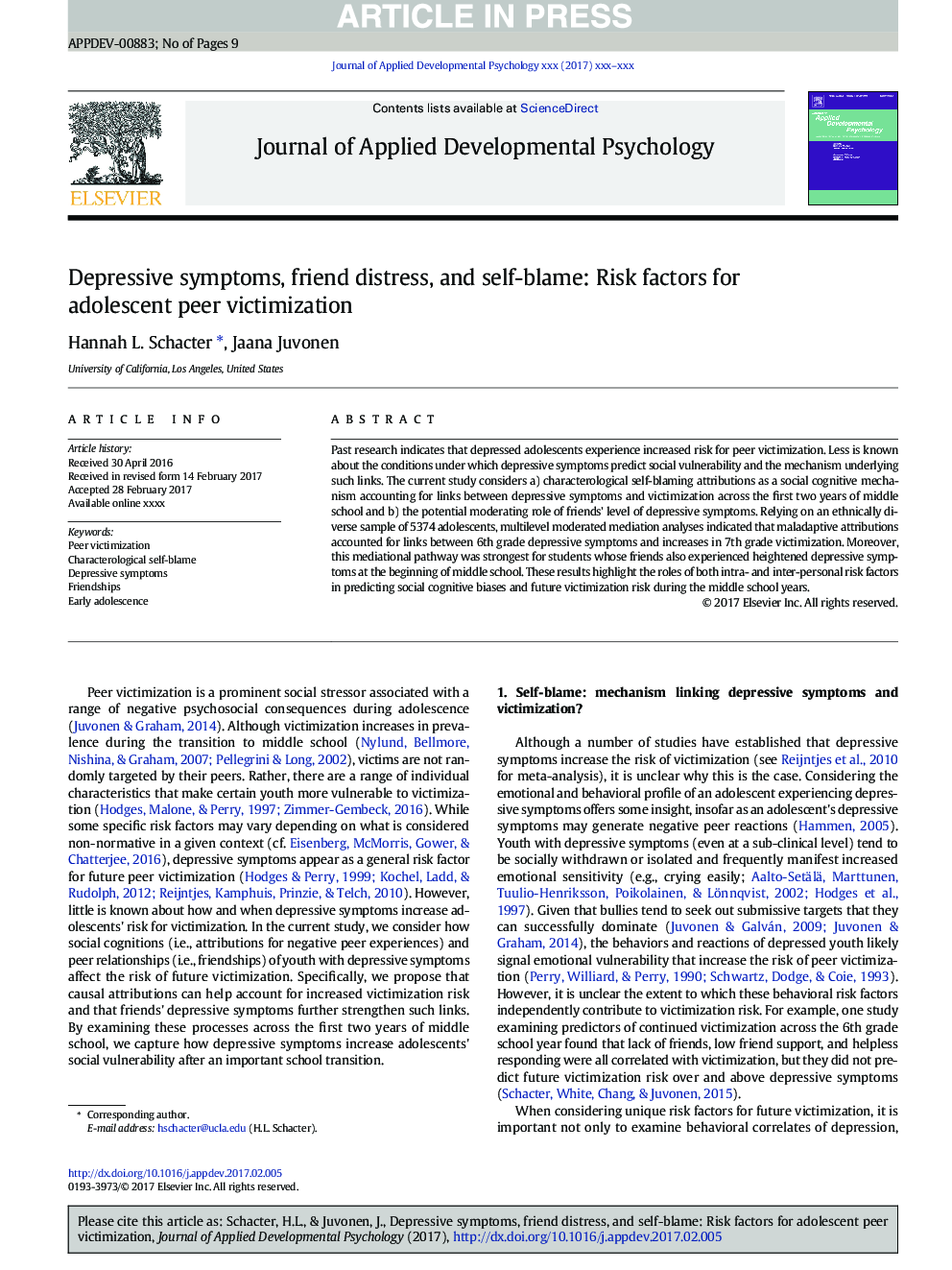| Article ID | Journal | Published Year | Pages | File Type |
|---|---|---|---|---|
| 4939112 | Journal of Applied Developmental Psychology | 2017 | 9 Pages |
Abstract
Past research indicates that depressed adolescents experience increased risk for peer victimization. Less is known about the conditions under which depressive symptoms predict social vulnerability and the mechanism underlying such links. The current study considers a) characterological self-blaming attributions as a social cognitive mechanism accounting for links between depressive symptoms and victimization across the first two years of middle school and b) the potential moderating role of friends' level of depressive symptoms. Relying on an ethnically diverse sample of 5374 adolescents, multilevel moderated mediation analyses indicated that maladaptive attributions accounted for links between 6th grade depressive symptoms and increases in 7th grade victimization. Moreover, this mediational pathway was strongest for students whose friends also experienced heightened depressive symptoms at the beginning of middle school. These results highlight the roles of both intra- and inter-personal risk factors in predicting social cognitive biases and future victimization risk during the middle school years.
Related Topics
Social Sciences and Humanities
Psychology
Applied Psychology
Authors
Hannah L. Schacter, Jaana Juvonen,
